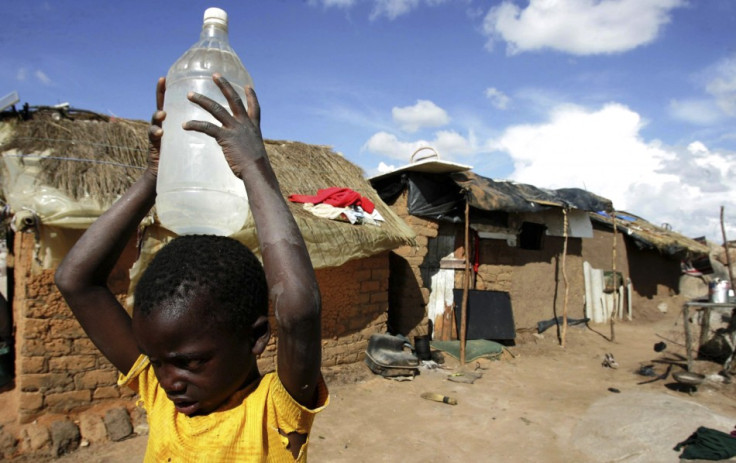Zimbabwe in Fear of Typhoid Epidemic as Disease Spreads across Country

Zimbabwe's typhoid outbreak is worsening with up to 50 new cases a day being reported and demands growing for the government to clean up the country's water and sanitation system.
Henry Madzorera, Zimbabwe's health minister, said up to 1,500 cases had been treated.
"An average of 30 to 50 cases are reported on a daily basis," he said, blaming the country's crumbling sanitation infrastructure for the outbreak.
Hundreds of reported and confirmed cases have been reported in the first three weeks of 2012.
"The progressive deterioration of public health infrastructure have seen such rare diseases like typhoid becoming more commonly encountered within our population," Madzorera said.
"The same poor water and sanitation conditions in Harare prevail in most of our urban areas and other parts of the country."
Madzorera called on the government to"refurbish the water, sanitation and sewerage infrastructure as a matter of urgency".
Most of the country's dams and water treatment facilities date back from the colonial era and have been neglected by the post-independence governments.
The situation is so bad that Harare officials now say they cannot supply water to all the city's residents.
Activists have warned that the poorest are the worst affected.
In October, the towns of Masvingo and Kadona suffered a diarrhoea outbreak as a result of poor sanitation and water systems and 6,472 cases were reported in the two towns. Sixty percent of those were aged under five and seven children died.
Tendai Biti, Zimbabwe's foreign minister, said the government would use $40m from the International Monetary Fund (IMF) to refurbish water and sanitation facilities.
© Copyright IBTimes 2025. All rights reserved.




















